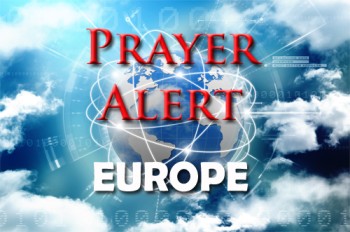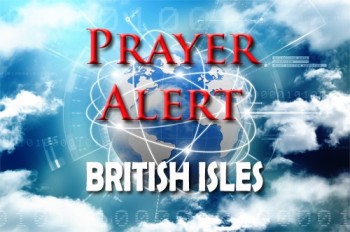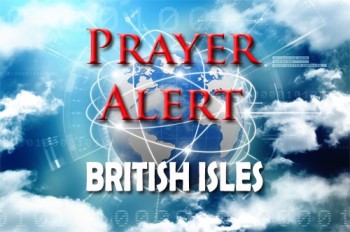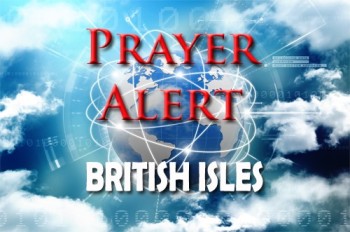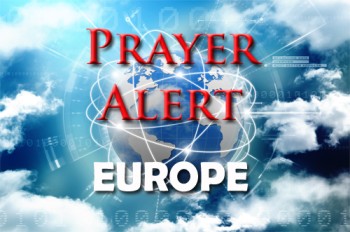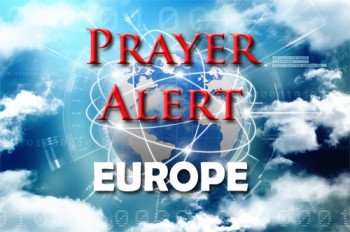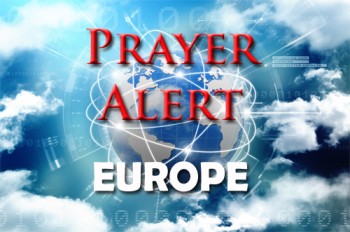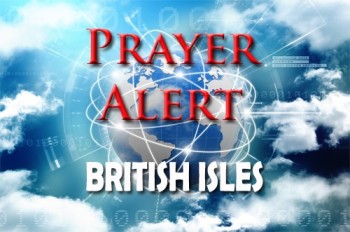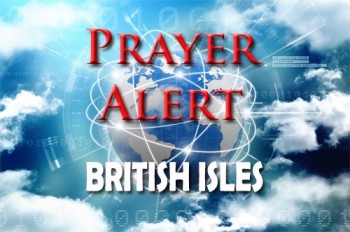Displaying items by tag: arrests
Moldova: president warns of Russian interference as elections near
Days before crucial parliamentary elections, Moldova’s president Maia Sandu has warned that Russian-backed plots are threatening her nation’s independence and European aspirations. Police have arrested 74 people accused of planning violent unrest, seizing weapons and explosives allegedly supplied through Russian training in Serbia. Sandu accused the Kremlin of pouring hundreds of millions of euros into Moldova to spread disinformation, buy votes, and intimidate pro-EU supporters, echoing past meddling during the 2022 EU-accession referendum which was narrowly approved by just 50.4%. Pro-Russian parties deny wrongdoing and claim Sandu is stifling opposition, while Moscow’s SVR intelligence agency countered with disinformation alleging European plans to falsify the vote and occupy Moldova. Sandu’s Party of Action and Solidarity faces stiff competition, especially in Russian-speaking regions like Gagauzia where many favour closer ties to Moscow. She is calling for high voter turnout, particularly from the diaspora, to safeguard the country’s sovereignty and keep its path toward EU membership.
More than 500 arrested at Notting Hill Carnival
This year’s Notting Hill Carnival saw more than 500 arrests over two days, a sharp rise from 349 in 2024. Police deployed over 7,000 officers daily, supported by CCTV, knife searches, and live facial recognition technology, which directly led to 61 arrests, including a registered sex offender, a machete attacker, and a fugitive wanted for a decade. While four stabbings occurred, none were fatal - a reduction in serious violence compared to recent years when murders took place. Arrests included 167 for drugs, 50 for offensive weapons, 21 for sexual offences, and 55 for assaults on police, with two officers requiring hospital treatment. Deputy assistant commissioner Matt Ward praised both proactive policing and carnival organisers for discouraging violence. Despite improvements, concerns remain over crowd safety and overcrowding risks. An independent review is expected to report in October.
67 people charged over Palestine Action support
The Metropolitan Police have confirmed that 67 people have been charged under section 13 of the Terrorism Act for allegedly showing support for Palestine Action, a proscribed organisation. Those charged, aged between 21 and 83, were arrested during central London protests on 5 and 12 July. They face a maximum sentence of six months’ imprisonment and are due to appear for trial in September and October. Since the group’s proscription on 5 July, more than 700 arrests have been made nationwide. Critics argue the ban infringes free speech, but Yvette Cooper insists Palestine Action has been responsible for serious crimes, including aggravated burglary and violent disorder. Commander Dominic Murphy rejected claims that protests had stretched police resources, stressing that law enforcement remained robust. The group has been granted permission to challenge the ban in the High Court in November, setting up a legal battle over the boundaries between protest and terrorism.
Northern Ireland: third night of violence in Ballymena
Ballymena, County Antrim, has experienced three consecutive nights of violent unrest following a protest over an alleged sexual assault. Initially peaceful, the protest escalated into serious disorder after two teenage boys appeared in court, denying the charges via a Romanian interpreter. Demonstrations turned hostile as crowds in the Clonavon Terrace area threw petrol bombs, fireworks, bricks, and bottles at police officers. The police deployed riot control measures including baton rounds and a water cannon. Seventeen more officers were injured overnight, bringing the total to 32, and five arrests were made. Several cars were set ablaze, and windows of local homes were smashed. Police have described the violence as 'racist thuggery’, suggesting that ethnic tensions had contributed to the escalation. Authorities are calling for calm amid concerns about further disturbances and are urging communities to reject hatred and violence. Update: on the third night a leisure centre in Larne was set on fire.
Turkey: over 1,400 arrested, protests continue
Protests have rocked Turkey for more than a week after the arrest of Istanbul’s mayor Ekrem Imamoglu, a key opposition figure and potential rival to President Erdogan. He was detained on corruption charges, which he and his supporters claim are politically motivated. Over 1,400 people have been detained since the unrest began, including students, journalists, and lawyers. Rights groups and the UN have condemned the mass arrests and police violence. Despite government bans, thousands have continued to gather in Istanbul, chanting against the government and demanding early elections. The Republican People's Party (CHP) is calling for transparent trials and the release of detained officials. President Erdogan has denied any political interference, warning protesters they are leading the country into chaos. Journalists covering the protests have also been arrested, prompting international concern. While Imamoglu remains eligible to run for president unless convicted, his arrest has escalated tensions in an already polarised political climate.
Turkey: key opposition leader arrested
The mayor of Istanbul, Ekrem Imamoglu, a key opposition leader, has been arrested days before he was to be selected as a presidential candidate. Along with 100 others, he has been charged with corruption and aiding a terrorist group. The arrest comes as part of a major crackdown nationwide in recent months, targeting opposition politicians, municipalities, journalists and figures in the entertainment industry. It has triggered nationwide protests, with police using force to disperse crowds. The government has imposed four days of restrictions in Istanbul, banning public gatherings and limiting internet access. The opposition sees this as a politically motivated move to weaken Imamoglu’s challenge to president Recep Erdogan, whose party was recently defeated in elections in Istanbul and Ankara. The government denies interference, insisting on judicial independence. Imamoglu has faced other challenges, including the annulment of his university degree, which would disqualify him from running. The international community has condemned the arrest, warning of Turkey’s increasing authoritarianism.
Netherlands: violence in Amsterdam continues
There has been severe unrest in Amsterdam since antisemitic violence linked to a football match on 7 November between Israel's Maccabi Tel Aviv and Ajax. The police presence in the city has been strengthened and most protests banned, but the violence has continued. The police have faced targeted attacks, including stones and fireworks. The disturbances have been fuelled by both anti-Israeli and anti-Palestinian sentiments, and Jewish institutions have received heightened security. So far, over a hundred people have been arrested in connection with the riots. Amsterdam’s mayor described the violence as an ‘outburst of antisemitism’: she said the authorities had considered calling the match off because of tensions fuelled by social media, but could find no legal grounds for doing so. The violence has sparked outrage, prompting an emergency debate in the Dutch parliament. In related news, four thousand police will be deployed in Paris on 15 November for a match between France and Israel: see
Fourteen photos released in police appeal over riots
Police have released photographs of fourteen men and boys they want to speak to following riots in Merseyside after the recent deaths of three young girls in Southport. The violent disorder spread to different cities, causing injuries to officers and widespread damage. Merseyside Police stressed the importance of identifying those pictured in the CCTV images and urged anyone who recognised them to come forward. Det Supt Paul Speight stated, 'The communities of Southport and beyond were disgusted by the violence and damage caused last week and at the weekend. We are continuing to process information, images, and footage, and we’ll take action to arrest, charge, and prosecute anyone identified.' Several suspects have already appeared in court, with three men jailed for violent disorder, including setting a police van on fire and assaulting an officer. Merseyside police have arrested 42 people so far, with 16 charged and three jailed.
Pageantry and protests
The royal family waved at crowds and watched a flypast at Buckingham Palace's balcony after the King and Queen’s coronation that was full of ancient Christian pageantry and symbolism. The 2,200 guests included the Royal Family, celebrities, faith leaders and heads of state. Thousands lined London streets to catch a glimpse of the King and Queen and members of the royal family in coaches and limousines as they went past. Elsewhere 52 members of Republic, the anti-monarchy group, were among those arrested near Trafalgar Square for public order offences, breach of the peace, and conspiracy to cause a public nuisance. Their organisers were arrested earlier that morning when police seized hundreds of placards saying, ‘Not My King’. Human Rights Watch said the coronation arrests were ‘something you would expect to see in Moscow not London’. Christian barrister Paul Diamond said that arresting anti-monarchist protestors before the coronation was an instance of ‘serious lawlessness by the police’.
Iran: executions rise amid unrest
Iran recently hanged two men for blasphemy, saying they had insulted the prophet Muhammad and promoted atheism. They were arrested in 2021 and spent months in solitary confinement without family contact. Iran has executed over 203 prisoners this year, but executions for blasphemy remain rare. The recent spate of executions, including members of ethnic minority groups, comes amid continuing protests over the arrest of Mahsa Amini by Iran’s morality police and her death in their custody. Over 500 people were killed and 19,000 arrested in the protests, which have been one of the biggest challenges to Iran’s theocracy since 1979’s Islamic Revolution. Today public frustration extends beyond repressive dress codes. The economy is in poor shape due to sanctions and Iran’s policy incompetence. Inflation is above 40%, currency is a record low, and unemployment tops 10%. Many believe that these anxieties mean further unrest is unavoidable.
